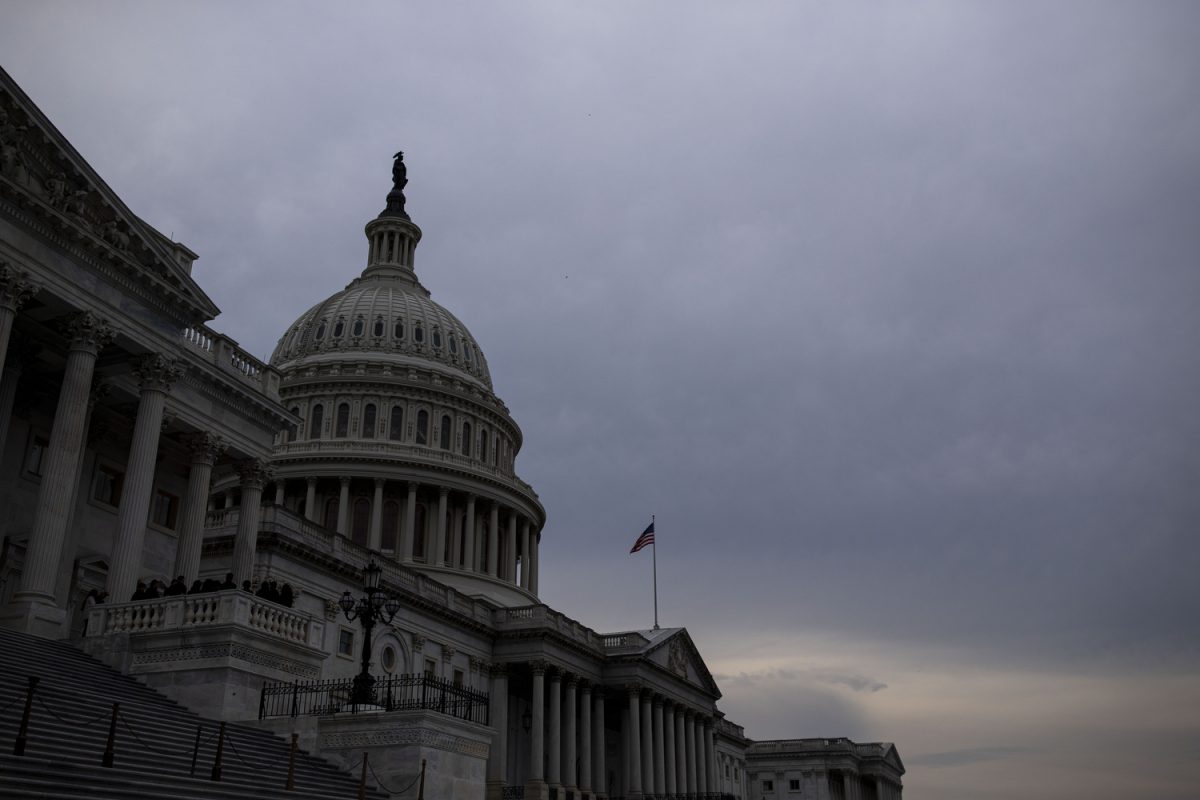Americans are stupid.
Sorry, I got ahead of myself. Most Americans are stupid.
Now, before you get angry and throw a fit because a student opinions columnist hurt your feelings, please give me a chance to explain.
This past Nov. 5, we saw Donald Trump win the office of the presidency of the United States in dominant fashion over current Vice President Kamala Harris. We also witnessed a full sweep in both the U.S. House and Senate, allowing for a “super take-over” by the Republican Party, alongside the already conservative-leaning Supreme Court.
Although shocking for some and ecstatic for others, these political results were a prime example of the American people expressing their voices thanks to the liberties awarded to them through both the foundational documents of the U.S. and its amendments.
The major issue, however, is not necessarily the results of the elections but the lack of knowledge and awareness most Americans possess when dealing with common civics questions and issues.
Because of this, millions of registered voters fail to recognize how the political process works, what specific responsibilities and actions elected officials can take, and how the system of checks and balances (theoretically) creates a “well-regulated” government.
These factors lead voters to be uninformed and to further buy into media “propaganda” rather than independently thinking about how to use their votes to achieve tangible results.
To create a better-educated society that focuses on the powers provided by the people, more citizens should seriously consider educating themselves on U.S. civics in order to become better voters and countrymen.
A 2024 report by the U.S. Chamber of Commerce Foundation revealed this past February that, after conducting a national survey of registered voters, over 70 percent of respondents were unable to identify the different branches of government, the number of Supreme Court justices, or the purposes and application of our democratic republic.
Not only does this statistic showcase a lack of awareness among a majority of American voters, but it also displays the intentional ignorance millions of Americans possess regarding important political issues.
People don’t know, but more importantly, people don’t seem to care to know.
This further highlights bigger problems at hand when dealing with uneducated voters and the electoral structure of the U.S. political system.
Additionally, in a similar survey conducted by the Annenberg Public Policy Center at the University of Pennsylvania, researchers found that in 2022, a very small percentage of Americans could name all five basic liberties awarded to them in the First Amendment.
Even more appalling, only 24 percent of Americans were able to name “freedom of religion” as one of those rights, with “freedom of the press” at 20 percent, and “right to assembly” at 16 percent.
This startling gap showcases not only the massive need to educate Americans on the basic liberties presented in our founding documents but also the need to reevaluate America’s educational curriculum to better inform current students about their rights and roles within the democratic process.
And before one side gets mad at the other for their lack of knowledge, according to the Pew Research Center, there was virtually no difference in political affiliation among those polled, with both Democrats and Republicans falling short on simple civics questions.
Therefore, the issue stems much deeper than a single political party being the root cause of the massive lack of educated citizens.
One way to curb this behavior and produce more independent and well-educated thinkers is through our school systems, putting an emphasis on modern civic engagement among young voters.
This concept is echoed by Amanda Litvinov for the National Education Association when she claims that “one of the primary reasons our nation’s founders envisioned a vast public education system was to prepare youth to be active participants in our system of self-government. The responsibilities of each citizen were assumed to go far beyond casting a vote; protecting the common good would require developing students’ critical thinking and debate skills, along with strong civic virtues.”
According to the National Assessment of Educational Progress, or NAEP, only 25 percent of U.S. students receive the “proficient” rating on their civics assessment. This illustrates the massive shift from formal education regarding modern civic ideals and lessons to a more convoluted and shaky understanding.
All of this data reiterates the need for a U.S. education revamp that places an emphasis on history and social studies classes across the country to hammer home civic concepts and better inform the next generation of voters.
If we can succeed in doing this, our current values may shift, but the end goal will allow for a much more dedicated and united union.



